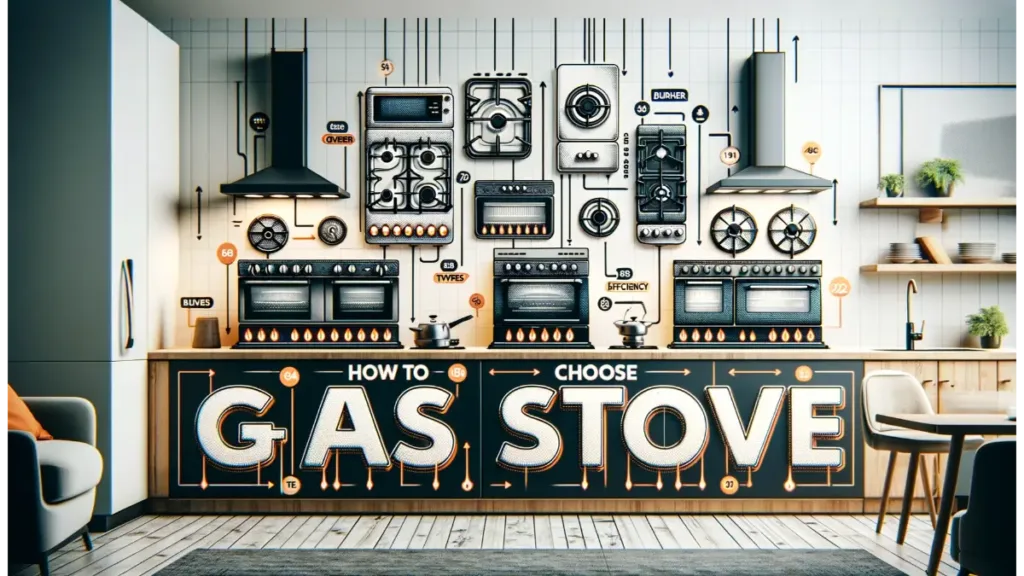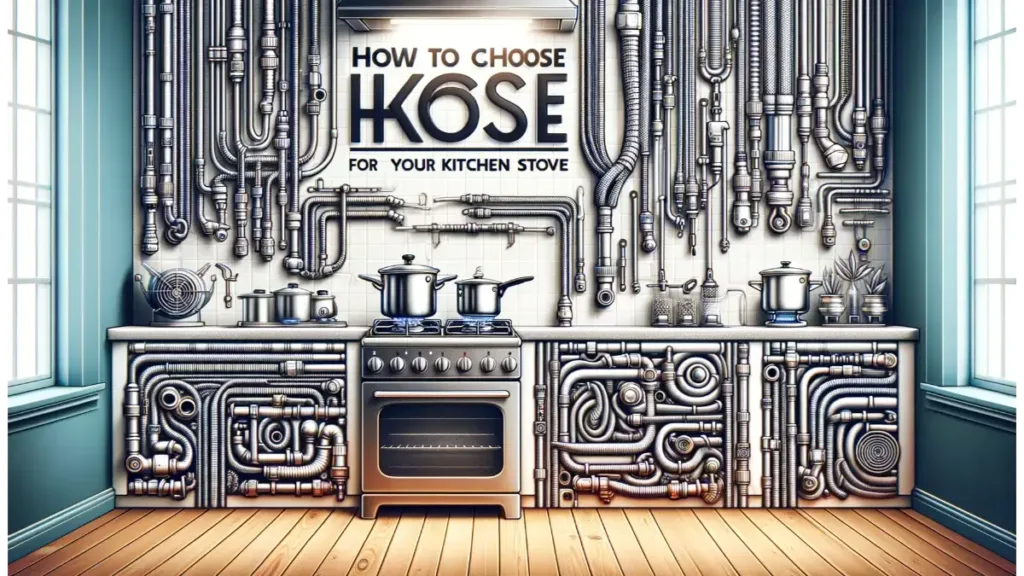For ages, fire has been considered an essential component of our cooking procedure. In the past, mankind used wood as a fuel for generating fire to cook food. However, with the technological advances, the stove is now considered an important appliance in your kitchen for food cooking.
Since its invention, the stove has been fueled in the past with wood. With rising health concerns regarding unclean sources of energy, wood was replaced with electricity or gas energy sources. Indeed, most of us don’t give much thought to the appliances in our kitchen beyond how well they cook.
But what if the choice between an electric or gas stove had consequences far beyond your meals—perhaps even reaching your bedroom and impacting how you sleep?

It sounds far-fetched, right?
Recent research papers have indicated a strong relationship between indoor air quality, household appliances, and sleep health. In this article, we explore whether gas or electric stoves are better for your sleep and how to minimize their effects on your sleep quality and quantity.
Understanding the Basics: Electric vs Gas Stove
Before diving into sleep science, let’s briefly compare the two common types of kitchen stoves:
Gas Stove
- Powered by natural gas or propane.
- Produces an open flame.
- Preferred by many chefs for quick temperature control.
- Emits combustion byproducts (e.g., nitrogen dioxide, carbon monoxide).
Electric Stove
- Uses heating coils or smooth-top surfaces powered by electricity.
- No open flame.
- Heats up slower than gas but is often considered safer indoors.
- Produces no combustion-related indoor emissions.
Impact of Gas And Electric Stove on Sleep Health: (What Is The Healthiest Stove For Better Sleep?)
Stove Emissions
Actually, gas stove produces several emissions such as nitrogen dioxide, carbon monoxide, formaldehyde and Volatile Organic Compounds (VOCs). All these emissions can lead to several health consequences, such as cough, airway obstruction, allergy, and chest infection (2).
Carbon monoxide at low doses can lead to headaches, dizziness, confusion, nausea, vomiting, and shortness of breath. All these health concerns can affect your sleep, especially in poorly ventilated areas.
Electric stoves produce no or lower emissions.
- Bills
When you choose any appliance in your home, consider many important elements: Price, Health Concerns, Size, and Your Bills at the end of each month.
It is generally known that gas is cheaper than electricity. Having a huge bill at the end of the month will significantly impact your budget and affect your mood, which subsequently affects your sleep.
- Instant Flame
Indeed, gas stove allows better instant flame and heat control than electric stoves. Both are necessary for well-cooked food and cooking time.
Cooking time is important. When you cook your meal in many hours, it will come at a significant cost upon your sleep time.
- Cleaning
Electric stoves are easy to clean compared to gas stoves. Cleaning time as well as exposure to heavy cleaning materials used for gas stoves can have an impact on your sleep.
- Children Exposure
When you have children in your home, you have to be careful about the energy source you are using. Gas stoves are vulnerable to gas leaks, either by mistake or a fracture in any part of the gas system.
Sleeping each day under the stress of gas leaks would dramatically affect your sleep (3).
Vulnerable Groups Who Should Be Extra Cautious
While gas stove emissions may not noticeably affect everyone, certain populations are at higher risk of experiencing sleep-related symptoms from air pollutants:
- Children and Infants
Their developing lungs are more sensitive to toxins, and poor sleep in early life can affect growth and cognitive development. - Pregnant Women
Even minor disturbances in sleep and oxygen levels can impact maternal and fetal health. - People with Asthma, Allergies, or Sleep Apnea
Gas emissions can exacerbate symptoms, leading to wheezing, coughing, or nighttime awakenings. - Elderly Individuals
Older adults already face age-related sleep fragmentation; poor air quality can make it worse.
If any of these groups live in your home, the argument for an electric stove becomes even stronger.
Can Cooking at Night Worsen the Problem? (Is It Safe To Cook With a Gas Stove At Night)
Yes. Cooking at night with a gas stove can have a greater impact on your sleep than cooking earlier in the day. Here’s why:
- Air Circulation Is Lower at Night
People tend to close windows and doors in the evening, which traps emissions inside the house. - You’re Closer to Bedtime
Exposure to nitrogen dioxide and VOCs just before bed can irritate your airways, making it harder to fall asleep. - Temperature Regulation
Cooking raises your core body temperature and increases the temperature in the room. Cooling down is essential for sleep onset, and heat from cooking can interfere with that process.
Tips to Minimize Sleep Disruption from Your Stove
If you’re not ready to give up your gas stove, or you live in a rental where electric isn’t an option, don’t worry—there are steps you can take to minimize the damage.
For Gas Stove Users:
- Always use a range hood or fan while cooking.
- Open windows during and after cooking to improve air exchange.
- Clean your burners regularly to reduce incomplete combustion.
- Avoid cooking within 1–2 hours of bedtime, especially if your kitchen is near your sleeping area.
- Use back burners (closer to ventilation hoods).
- Invest in an indoor air purifier with a HEPA and carbon filter.
For Everyone:
- Cook earlier in the evening to allow air to clear before bedtime.
- Avoid burning foods that increase VOCs and particulates.
- Choose cookware that’s low-emission (avoid Teflon and non-stick pans at high heat).
- Wipe surfaces regularly to prevent the buildup of irritants.
Conclusion
Your stove may not seem connected to your sleep, but in a world where indoor air quality is more important than ever, even small decisions make a difference. Electric stoves provide a cleaner, safer, and more sleep-friendly environment—especially in the hours before bedtime.
While gas stoves still dominate many homes, understanding their impact allows you to take control of your sleep health, one breath at a time.
So the next time you’re deciding how to upgrade your kitchen, don’t just think about what makes a good meal—think about what helps you sleep well, too.




